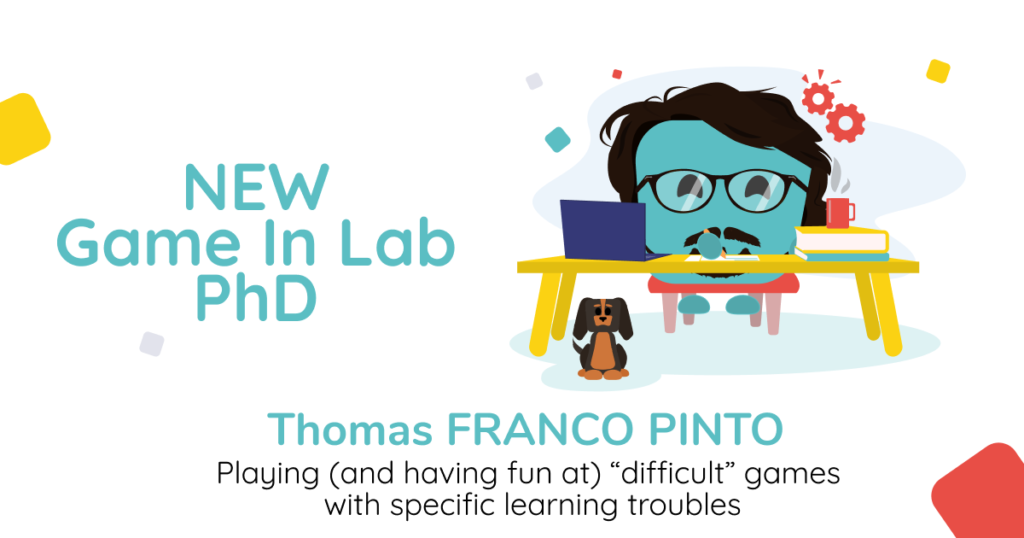
Can you talk to us about your academic career ? What you did before research ?
I have a relatively traditional career before my PhD. After my baccalauréat, I started studying languages sciences at Université Clermont-Auvergne, also preparing a Master. During my three years there, I fell in love with linguistics and headed for a Research master in language sciences, this time at Université Lumière Lyon 2. This is where I found out about an intriguing multi-disciplinary subject combining sociology and linguistics named “Conversational Analysis”.
Following up on my end of study memoir, I worked a full year as an assistant engineer at the ICAR Laboratory, specialized in interaction analysis. More precisely on a project called INTERJEUX, studying family interactions in board games. This influenced me a lot to prepare my PhD project.
Finally, thanks to a considerate colleague, I learned about and applied to Game in Lab’s CIFRE call for project and here I am !
Can you talk a bit more about your project ?
First of all, it is important to know it deals with Language Sciences, more precisely Conversational Analaysis and Interactional Linguistic.
The idea is to observe interactions between individuals in natural and spontaneous conditions. No exterior parameters, only a specific context : people, dialogues, gestures. All of it recorded by a couple of cameras and a microphone, which will be analyzed later on.
I will be focusing on precise indviduals in a pre-determined context : children with specific learning troubles called dys-, while playing board games with family.
One of the specifities of this study relies on the last element : the fact that families will play three types of games :
- An game “accessible” to people with cognitive troubles from Asmodee’s Access+ studio,
- Its general public counterpart
- A game with “medium” difficulty with more complex rules and mechanics.
Finally, the goal of the project is to observe the strategies used by players, what discussions will result from them, game engagement and disengagement, how they circumvent potential hardships but mainly see if they manage to really “play”, hav fun, during the different sessions.
Can you tell us more about the type of games you will be studying ?
The games I will be working on have different parameters, first in difficulty but also in mechanics.
The Access+ game and its general public equivalent, Timeline, is a reflexive card game encouraging cooperation and asking players to place cards representing inventions or dates on a “Timeline”. It involves short and long term memory, thinking and communication.
The “medium difficulty” game will be selected by players from a list of cooperative or competitive games like 7 Wonders, Catan or Pandemic. Compared to Timeline, those games ask for more board and play space comprehension, more rules and tactics but also encourage mutual aid more than the last game.
Again, the objective is to let people develop and learn those games as they want while having fun !
Finally, do you have an idea of your steps’ timeframes ?
But everything will be done all in good time. For now, I am focusing on my State of the Art and on preparing the fieldwork. Once I gather enough data, I will start redacting and analyzing.
Thank for your answers and time Thomas, we wish you the best for your project !
Learn more about the project “Playing (and having fun) difficult games with specific learning troubles.